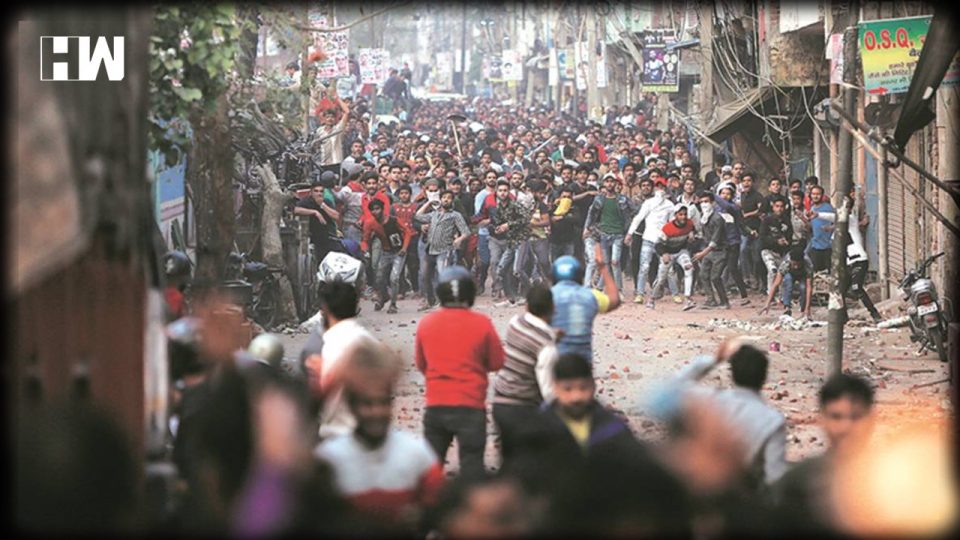I&B ministry has banned two Malayalam channels for 48 hours, stating that their reports sided “towards a particular community” among other violations.
New Delhi| The Information and Broadcasting (I&B) ministry has banned two Malayalam news channels for 48 hours over their “biased” coverage of the Delhi riots, stating that their reports sided “towards a particular community” among other breaches of the Cable TV Act.
In orders issued late on Friday evening, the Information and Broadcasting Ministry said Asianet News and MediaOne TV had violated provisions of the Cable Television Networks Rules, 1994, by broadcasting reports on February 25 that “highlighted the attack on places of worship and siding towards a particular community”.
The ministry said that as per the rules “no programme should be carried… which contains attacks on religions or communities or visuals or words contemptuous of religious groups”.
Surprisingly, one of the reasons cited in the information and broadcasting ministry’s order banning Media One is this: “Channel’s reporting on Delhi violence seems to be biased as it is deliberately focusing on the vandalism of CAA supporters. It also questions RSS and alleges Delhi Police inaction. Channel seems to be critical towards Delhi Police and RSS.”
RSS is the Rashtriya Swayamsevak Sangh, the parent organisation of Modi’s Bharatiya Janata Party.
It further charged that “no programme should be carried… which is likely to encourage or incite violence or contains anything against maintenance of law and order”.
The ministry said Asianet had referred to the attacks as “communal violence” and its anchor/correspondent had said, “the centre gave silent consent for the violence”.
The ministry said it had examined a copy of the telecast, which included comments like “…commuters on the road are forced to chant Jai Shri Ram… Muslims are brutally attacked… (and) centre can control the violence within hours, but no action has been taken”.
The notification against MediaOne TV focused on a phone-in of a Delhi-based correspondent who claimed: “vandals had fired at an anti-CAA protest site from a rooftop from 2 pm to 9 pm and around five anti-CAA protesters were injured”.
Also Read: Operation 136: Can India trust prime-time media?
A copy of the transmission that aired on MediaOne TV was examined by the ministry, which said it attacked the government for its “cold-shouldered approach towards anti-CAA protesters” and criticised Delhi Police for failing to register FIRs against a “provocative speech” by unnamed BJP leader in Jafrabad, another of the violence-hit areas.

Both channels provided detailed responses to the notifications that were listed in the same.
MediaOne TV called the charges “not correct… arbitrary and unreasonable”, pointing out that the ministry had “conveniently omitted several news reports (telecast the same day) that reported the government (was) doing everything possible to curb the violence”.
“This is the central government trying to intimidate channels and it’s a signal to everyone. We have done only what we as media should do. We have reported only facts,” CL Thomas, the channel’s editor-in-chief, said.
On being asked about allegations of criticism against the RSS, the ideological mentor of the ruling BJP, Mr Thomas said: “It seems the RSS is beyond questioning”.
Asianet News was similarly steadfast in its denial, saying their reporters had risked their lives to report on the violence. In response to allegations of siding with a community, the channel pointed out they had also telecast interviews with residents of Yamuna Vihar who belonged to the majority community.
Kerala Finance Minister Thomas Issac praised both channels for “impartial reportage (and) exposing Hindutva communal brigades”.
The I&B ministry keeps a track of content broadcast by all television channels, including news channels, primarily through its media unit Electronic Media Monitoring Centre (EMMC).
In 2016, the ministry had ordered a 24-hour ban on the Hindi news channel NDTV India for its coverage of the attack on the Pathankot base of the Indian Air Force. It was later put on hold by the government. The move was widely condemned by media watchers who said the channel was unfairly singled out.
As an independent media platform, we do not take advertisements from governments and corporate houses. It is you, our readers, who have supported us on our journey to do honest and unbiased journalism. Please contribute, so that we can continue to do the same in future.

